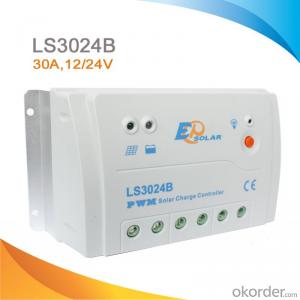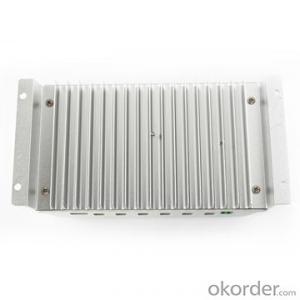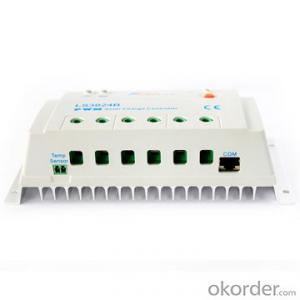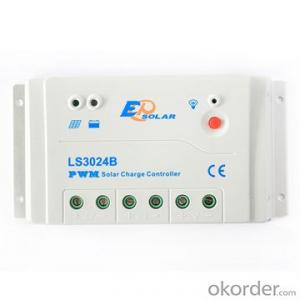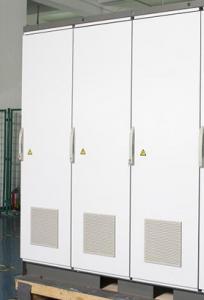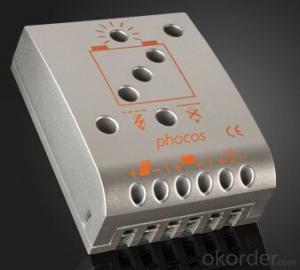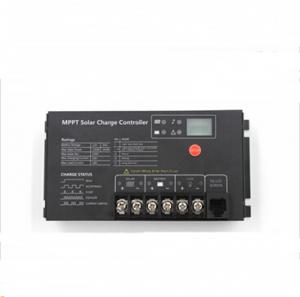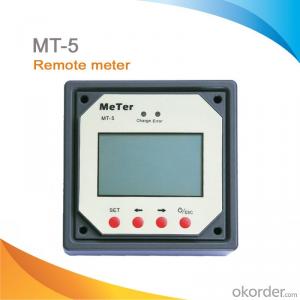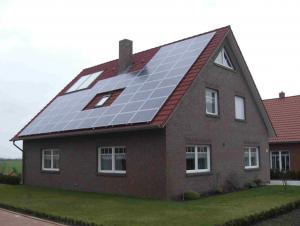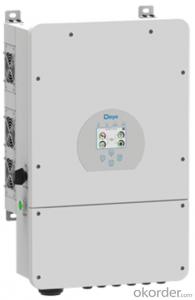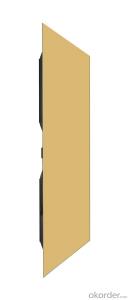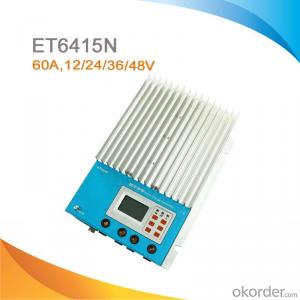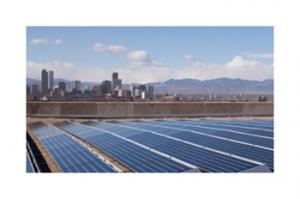PWM Solar Charge Controller,30A 12/24V,LS3024B
- Loading Port:
- Tianjin
- Payment Terms:
- TT or LC
- Min Order Qty:
- -
- Supply Capability:
- 10000 pc/month
OKorder Service Pledge
OKorder Financial Service
You Might Also Like
Features:
·Three system voltage configuration : 12V, 24V or 12V/24V auto work
·High efficiency PWM charging with temperature compensation
·3 LEDs shows PV charging, battery and load status
·External temperature sensor interface
·RS-485 bus communication
·Open standard Modbus communication protocol
·Software update function
More powerful function via MT50 or PC
·Diversified load control modes : Manual, Light ON/OFF, Light ON+ Timer, Time Control
·Battery type selection: Gel, sealed, flooded and User type
·Real-time monitor
·Programmable parameters
·LVD or SOC load disconnect function
·Energy statistics function
Electronic Protections:
·PV short circuit
·PV reverse polarity
·Battery overcharge
·Battery over discharge
·Battery reverse polarity
·Load short circuit
·Load overload
·Overheating
Specification:
Electrical parameters | LS1024B | LS2024B | LS3024B |
Nominal System Voltage | 12 / 24V auto work | ||
Rated Battery Current | 10A | 20A | 30A |
Maximum battery voltage | 50V | ||
Grounding | Common positive | ||
Self-consumption | 8.4mA(12V),7.8mA(24V) | ||
Temp. compensation | -3mV/℃/2V(25℃ ref) | ||
Equalize charging voltage | Sealed: 14.6V, Flooded: 14.8V, User-defined: 9~17V | ||
Boost charging voltage | Gel: 14.2V, Sealed: 14.4V, Flooded: 14.6V, User-defined: 9~17V | ||
Float charging voltage | Gel /Sealed /Flooded: 13.8V, User-defined: 9~17V | ||
Low voltage reconnect voltage | Gel /Sealed /Flooded: 12.6V, User-defined: 9~17V | ||
Low voltage disconnect voltage | Gel /Sealed /Flooded: 11.1V, User-defined: 9~17V | ||
Working temp. | -35℃~+55℃ | ||
Humidity | ≤95% (NC) | ||
Enclosure | IP30 | ||
Dimension | 138.6x69.3x37mm | 159.6x81.4x47.8mm | 200.6x101.3x57mm |
Terminal | 4mm2 | 10mm2 | 10mm2 |
Net weight | 0.13kg | 0.3kg | 0.5kg |
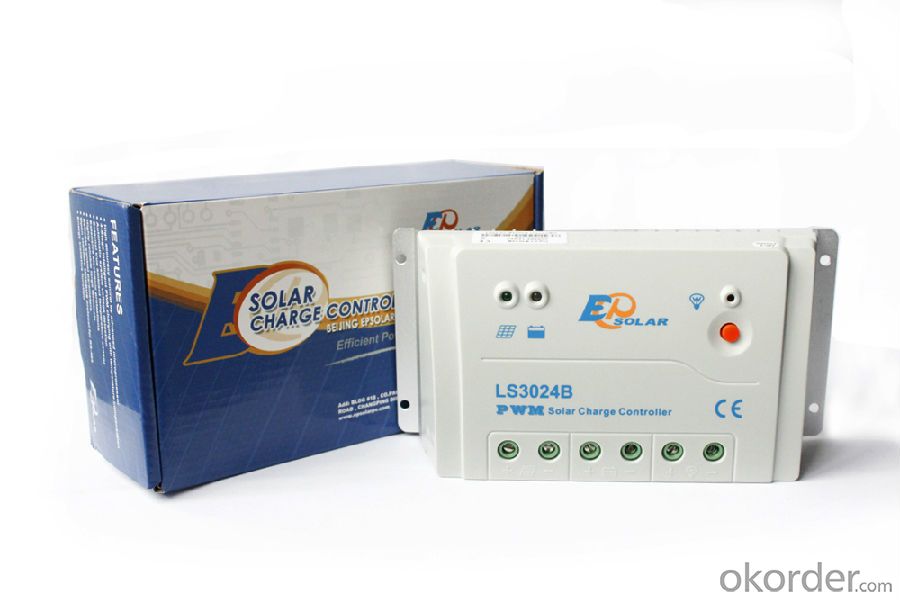
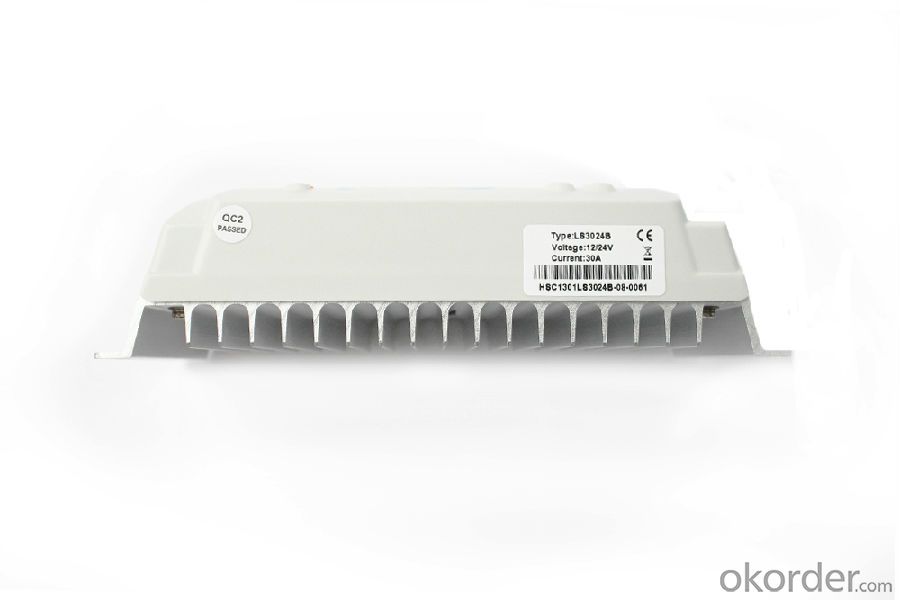
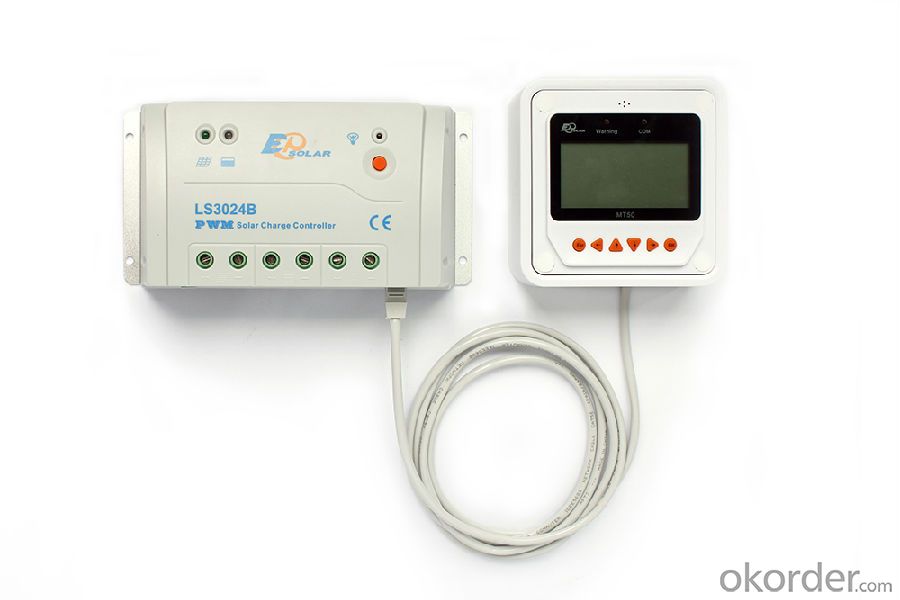
FAQ:
Q1. What is the voltage?
A1. Our 45/60A solar charge controller is 12/24/36/48V auto work.
Q2. What is the difference between MPPT&PWM?
A2. MPPT has higher efficiency, it can track the max power point and won't waste energy.
Q3. What is the efficiency of the MPPT controller?
A3. MPPT>99%, peak conversion efficiency>98%.
Q4. What is the waranty of product?
A4. 12 months.
Q5. What protection does your MPPT controller have?
A5. PV array short circuit, PV reverse polarity, Battery reverse polarity, Over charging, Output short circuit.
- Q:Can a solar controller be used with solar-powered outdoor lighting?
- Solar-powered outdoor lighting can indeed use a solar controller. In fact, a solar controller is a crucial component of a solar power system, which includes solar-powered outdoor lighting. Its main function is to regulate and manage the energy flow from the solar panels to the lighting system, guaranteeing efficient charging and optimal performance. Moreover, the solar controller plays a vital role in safeguarding the batteries by preventing overcharging or discharging, thereby extending their lifespan. Additionally, it offers various control features, such as timers, dimming options, and remote control capabilities, enabling users to personalize the lighting settings based on their preferences. All in all, a solar controller is an indispensable element of a solar-powered outdoor lighting system, ensuring its dependability and effectiveness.
- Q:How do I troubleshoot a solar controller that is not working?
- To troubleshoot a solar controller that is not working, start by checking the connections and ensure they are secure and properly connected. Verify that the solar panel is receiving sufficient sunlight and the battery is charged. If these are okay, inspect the controller for any visible damage or loose wires. Resetting the controller or checking the user manual for specific troubleshooting steps can also be helpful. If the issue persists, contacting the manufacturer or a professional technician for further assistance may be necessary.
- Q:What is the cost of a solar controller?
- The cost of a solar controller can vary depending on several factors such as brand, capacity, features, and quality. On average, a basic solar controller can range from $20 to $50, while more advanced models with additional functionalities can cost anywhere from $50 to $200 or more.
- Q:Are solar controllers necessary for small solar panel systems?
- Yes, solar controllers are necessary for small solar panel systems. Solar controllers, also known as charge controllers or regulator, are essential components in any solar power system. Their main function is to regulate and control the power flowing from the solar panels to the battery or grid. For small solar panel systems, solar controllers play a critical role in protecting the battery from overcharging or discharging. When the sun is shining and the solar panels are generating excess power, the controller ensures that the battery is not overcharged, which can damage the battery and decrease its lifespan. Conversely, during periods of low sunlight or at night, the controller prevents the battery from discharging too much, which can also cause damage. Moreover, solar controllers help to optimize the charging process by maximizing the efficiency of the solar panels. They use various techniques such as pulse width modulation (PWM) or maximum power point tracking (MPPT) to ensure that the solar panels are operating at their peak power output. This helps to capture the maximum amount of energy from the sun and charge the battery more effectively. In addition to these functions, solar controllers often include additional features such as temperature compensation, load control, and digital displays to provide information about the system's performance. These features can be particularly useful for small solar panel systems where monitoring and control are important. Overall, while solar controllers may add some cost to the system, their benefits far outweigh the expense. They are necessary components for small solar panel systems to ensure the efficient and safe operation of the system, prolong the battery's lifespan, and maximize the solar panels' performance.
- Q:Can a solar controller be used with solar-powered pool heating systems?
- Certainly! Solar-powered pool heating systems can definitely utilize a solar controller. In fact, a solar controller plays a vital role in these systems. Its main function is to regulate and manage the water flow within the solar panels, ensuring that the heating efficiency is at its best. By constantly monitoring the temperature of both the pool water and the solar collectors, the solar controller is able to make necessary adjustments to the flow rate and diverting valves, effectively directing the water through the solar collectors for optimal heating. Moreover, the solar controller can also provide valuable information regarding the system's performance and energy savings. This enables users to keep track of and optimize their pool heating system accordingly. Therefore, it is highly recommended to incorporate a solar controller into a solar-powered pool heating system in order to fully maximize the advantages of solar energy for pool heating.
- Q:Can a solar controller be used with a solar-powered off-grid community?
- Yes, a solar controller can definitely be used with a solar-powered off-grid community. A solar controller is an essential component in solar power systems as it helps regulate and optimize the charging and discharging of batteries, ensuring efficient utilization of solar energy. In an off-grid community, where solar power is the primary source of electricity, a solar controller would play a crucial role in managing the power flow and maintaining the battery health, making it an essential component for the community's energy system.
- Q:How does a solar controller prevent damage to the solar panels from power surges?
- A solar controller prevents damage to solar panels from power surges by regulating the flow of electricity between the panels and the battery. It acts as a barrier, blocking excessive voltage or current that may occur during power surges, ensuring that only the optimal amount of power is supplied to the panels, thus protecting them from potential damage.
- Q:Can a solar controller be used in a solar-powered irrigation system?
- Yes, a solar controller can be used in a solar-powered irrigation system. The solar controller is responsible for managing and regulating the flow of electricity from the solar panels to the irrigation system, ensuring that the system operates efficiently and effectively.
- Q:Can a solar controller be used with a solar-powered charging station for electronic devices?
- Yes, a solar controller can be used with a solar-powered charging station for electronic devices. A solar controller helps regulate the voltage and current from the solar panels to ensure efficient charging and protect the connected devices. It prevents overcharging and optimizes the charging process, making it compatible and safe for use with a solar-powered charging station.
- Q:How does a solar controller prevent damage to the solar panels?
- A solar controller prevents damage to solar panels by regulating the flow of electricity from the solar panels to the batteries or power grid. It ensures that the panels do not overcharge the batteries, which can cause damage due to excessive voltage. Additionally, a solar controller can also prevent the batteries from discharging too much, which can lead to damage or reduced lifespan of the panels.
1. Manufacturer Overview |
|
|---|---|
| Location | |
| Year Established | |
| Annual Output Value | |
| Main Markets | |
| Company Certifications | |
2. Manufacturer Certificates |
|
|---|---|
| a) Certification Name | |
| Range | |
| Reference | |
| Validity Period | |
3. Manufacturer Capability |
|
|---|---|
| a)Trade Capacity | |
| Nearest Port | |
| Export Percentage | |
| No.of Employees in Trade Department | |
| Language Spoken: | |
| b)Factory Information | |
| Factory Size: | |
| No. of Production Lines | |
| Contract Manufacturing | |
| Product Price Range | |
Send your message to us
PWM Solar Charge Controller,30A 12/24V,LS3024B
- Loading Port:
- Tianjin
- Payment Terms:
- TT or LC
- Min Order Qty:
- -
- Supply Capability:
- 10000 pc/month
OKorder Service Pledge
OKorder Financial Service
Similar products
New products
Hot products
Hot Searches
Related keywords
